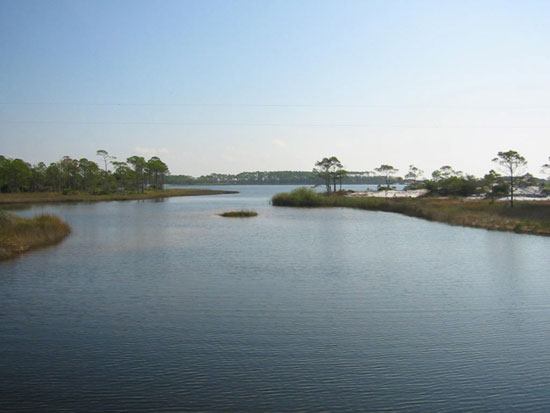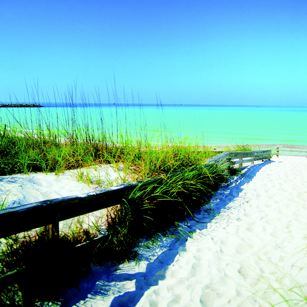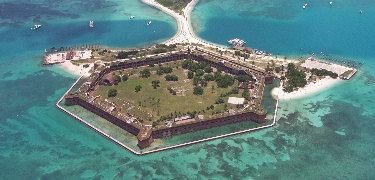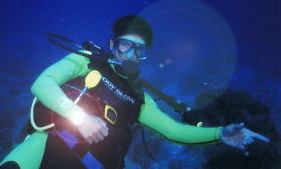Travel Tips
Gulf Coast Oil Report: Local Businesses Collapsing, Ecosystem Toxic
 When a front-line news reporter dives 88 feet underwater just miles from the Deepwater Horizon spill, the magnitude of this catastrophe takes on a new dimension.
When a front-line news reporter dives 88 feet underwater just miles from the Deepwater Horizon spill, the magnitude of this catastrophe takes on a new dimension.
Read on for Peter’s conversation with Kerry Sanders, NBC News correspondent, about his recent coverage of the BP oil spill.
Peter Greenberg: Kerry, you’re based out of Florida and have been covering the story in the Gulf Coast. What are you seeing out there, and what are you not seeing out there?
Kerry Sanders: The economic hardship is the face of American hardship. I saw it recently at the AmeriPure Oyster company. Ameripure, 15 years ago, was in a garage started by two guys. One gentlemen is a native from Louisiana who goes back 40 years in the oyster business; the other guy is from Chicago.
 They had this idea that they could brand their oysters. It wouldn’t just be a Gulf oyster, it would be an Ameripure oyster. So they created a pasteurization process. Have you ever been to a restaurant and you see a sign that says “eating raw fish may be hazards to your health?” They’ve figured out a way to get around that with their pasteurization process. They’ve grown incredibly. Their oysters are branded on the menu at more than 400 Red Lobsters.
They had this idea that they could brand their oysters. It wouldn’t just be a Gulf oyster, it would be an Ameripure oyster. So they created a pasteurization process. Have you ever been to a restaurant and you see a sign that says “eating raw fish may be hazards to your health?” They’ve figured out a way to get around that with their pasteurization process. They’ve grown incredibly. Their oysters are branded on the menu at more than 400 Red Lobsters.
Well, they shut down yesterday. Forty-three employees, some of them having been there 12, 13 years, had to get the pink slip, and the business is now shut down indefinitely. There were a lot of tears, a lot of heartache, and of course a lot of anger at BP because, of course, this is just one more example of how things are changing.
Learn more with this interview with Jean-Michel Cousteau.
Of course, the biggest question with 60 barrels flowing into the gulf is, what is the long-term impact on the fish and the way of life for people? I met one guy whose family has been in this business for four generations, and he thinks this might be a really dramatic change in the way they live.
 PG: We had a wake-up call on September 12; we had a wake up call just two months ago when the volcano erupted in Iceland. Now we have a wake-up call in the Gulf, where suddenly everybody starts to realize the power of travel and tourism.
PG: We had a wake-up call on September 12; we had a wake up call just two months ago when the volcano erupted in Iceland. Now we have a wake-up call in the Gulf, where suddenly everybody starts to realize the power of travel and tourism.
KS: I think that folks who are dedicating themselves to get on a plane, in a car, are making a choice to come to this region. They are probably finding some pretty good deals. I was in Destin, Florida, not too long ago, and I know that bookings were off by about 30 percent. They weren’t dropping the prices to rock bottom, but the prices were certainly cheaper than they normally would have been. This is the time of the year that Panhandle area starts seeing its larger crowds, as opposed to South Florida where you usually see it in the winter. Quite frankly the beaches were beautiful. I know the oil is beginning to wash up, but there’s a real opportunity, especially for Southeast people hopping in their cars and going down to Destin.
Learn more with our Ask the Locals Travel Guide: Destin, Florida.
PG: It’s interesting when we talk about the long-term impact here. I was talking to the owner of The Hangout restaurant and he was talking about all the people who were putting in claims to BP.  He said he has a T-shirt distributor in Virginia who is putting in a claim because they realize that their sales are going to drop. When you think about the ripple effect economically, for people who are not even in Alabama, or Mississippi, or Louisiana, it’s huge.
He said he has a T-shirt distributor in Virginia who is putting in a claim because they realize that their sales are going to drop. When you think about the ripple effect economically, for people who are not even in Alabama, or Mississippi, or Louisiana, it’s huge.
KS: You know this claim is really going to be an interesting thing to follow because I was recently in Franklin, Louisiana, where this oyster company shut down. Those 43 employees who lost their jobs on Monday are going to apply for food stamps now because about the only place that is hiring right now is the contractors for BP to go pick up the oil. So the people who caused them to lose their job are now the only places they can go and get any employment. But not all these people have the ability to get to the Coast to do that job because they don’t have transportation. They rode their bikes to work to this oyster company, so now they’re going on public assistance and getting things like food stamps. They all told me, as you know, that’s our government that pays that. Well, we think that the government should send the bill to BP. With $20 billion put aside, when you start adding up all the little areas that people say we need a piece of that action, I wonder how much $20 billion is going to last?
Learn more with Peter’s radio show from Gulf Shores, Alabama:
 PG: You’ve raised a very interesting point about how low is this dollar figure really when you start adding it all up? I guess the other question is, are you seeing people making the conscious choice to vacation here and are the also making the choice to come down and help out?
PG: You’ve raised a very interesting point about how low is this dollar figure really when you start adding it all up? I guess the other question is, are you seeing people making the conscious choice to vacation here and are the also making the choice to come down and help out?
KS: I have not bumped into people who have said, “I came here just for this reason to help the community out.” There may be some folks out there. It’s probably a good thought to plant that seed because I have not bumped into people that are doing that.
PG: This a long-term story. It is one you are probably going to be covering for quite some time.
Learn more in our Natural Disasters section.
 KS: Honestly, it is probably decades of coverage when you consider that we do not know what the effects of the oil are going to be on the Gulf region. Especially when you mix in that disperse in Corexit. I got a report yesterday, and I think I’ll get a much better confirmation of it, but there are pieces of small fragments or small specks of oil showing up in the Dry Tortugas. As you know, this Corexit breaks up the oil and keeps some of it below the surface. If we’re beginning to see the oil make its way down to the Dry Tortugas, then we’re really getting an idea that it is really not what we see, but what we may not see that could be the real hidden danger here.
KS: Honestly, it is probably decades of coverage when you consider that we do not know what the effects of the oil are going to be on the Gulf region. Especially when you mix in that disperse in Corexit. I got a report yesterday, and I think I’ll get a much better confirmation of it, but there are pieces of small fragments or small specks of oil showing up in the Dry Tortugas. As you know, this Corexit breaks up the oil and keeps some of it below the surface. If we’re beginning to see the oil make its way down to the Dry Tortugas, then we’re really getting an idea that it is really not what we see, but what we may not see that could be the real hidden danger here.
Learn more about the Dry Tortugas in Five Hidden National Parks.
PG: Now I know you’re a diver and you went down a couple of days ago, didn’t you?
 KS: I did. I went down and we were about 50 miles just Northwest of where Deepwater Horizon was, where the oil is coming out. There is oil in the water, there is oil below, depths up to about 15-20 feet. We went down to as low as 88 feet, and what struck me the most was I saw the jellyfish floating through the water in a current. All with the oil in them. And then of course the turtles eat the jellyfish. So the turtles ingest the jellyfish, and at the same time ingest the oil. The scientists are concerned that long term, the ingestion of that oil will cause the turtles to die. Kemp’s Ridley is a type of turtle on the Gulf that is one of the most endangered turtles on the list. We saw one dead, coated in oil. You start thinking about the life-cycle, and how everything is connected, and you realize that this oil can have long, long-term impacts.
KS: I did. I went down and we were about 50 miles just Northwest of where Deepwater Horizon was, where the oil is coming out. There is oil in the water, there is oil below, depths up to about 15-20 feet. We went down to as low as 88 feet, and what struck me the most was I saw the jellyfish floating through the water in a current. All with the oil in them. And then of course the turtles eat the jellyfish. So the turtles ingest the jellyfish, and at the same time ingest the oil. The scientists are concerned that long term, the ingestion of that oil will cause the turtles to die. Kemp’s Ridley is a type of turtle on the Gulf that is one of the most endangered turtles on the list. We saw one dead, coated in oil. You start thinking about the life-cycle, and how everything is connected, and you realize that this oil can have long, long-term impacts.
By Peter Greenberg for Peter Greenberg Worldwide Radio.
Related links on PeterGreenberg.com:
- Interview with Jean-Michel Cousteau about the Gulf Oil Spill
- Eco-Travel section
- Ask the Locals Travel Guide: Destin, Florida
- America the Beautiful: Five Hidden National Parks
- BP Oil Hits Florida Beaches, Tourism Suffers
- BP Offers Cash for Oil Spill States’ Tourism Marketing
- BP Asked to Pay for Ads to Aid Oil Spill States
- Oil Spill Disaster Strikes Louisiana Coast, Mississippi Delta: Florida Next
Peter’s radio show from Gulf Shores, Alabama:












